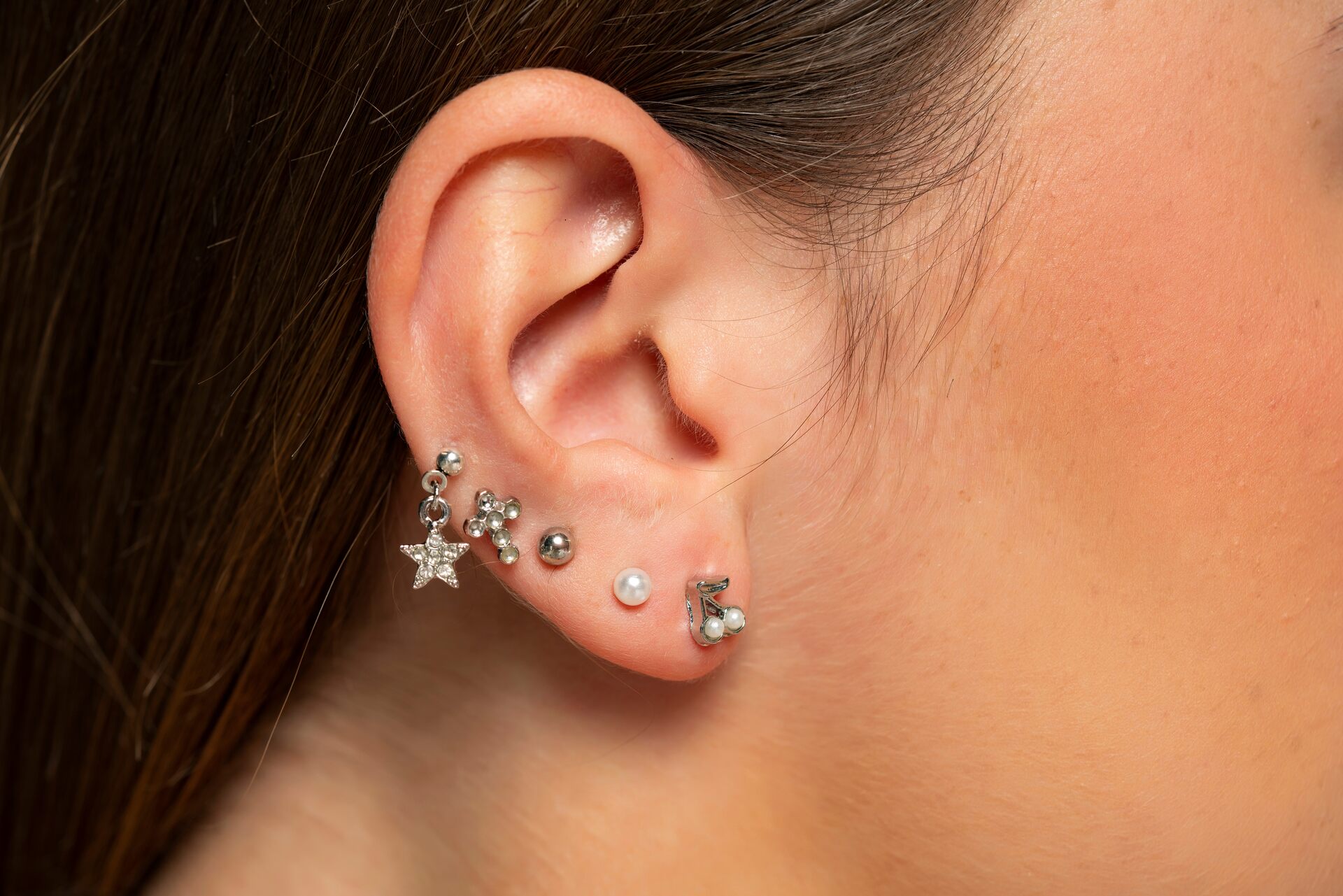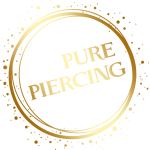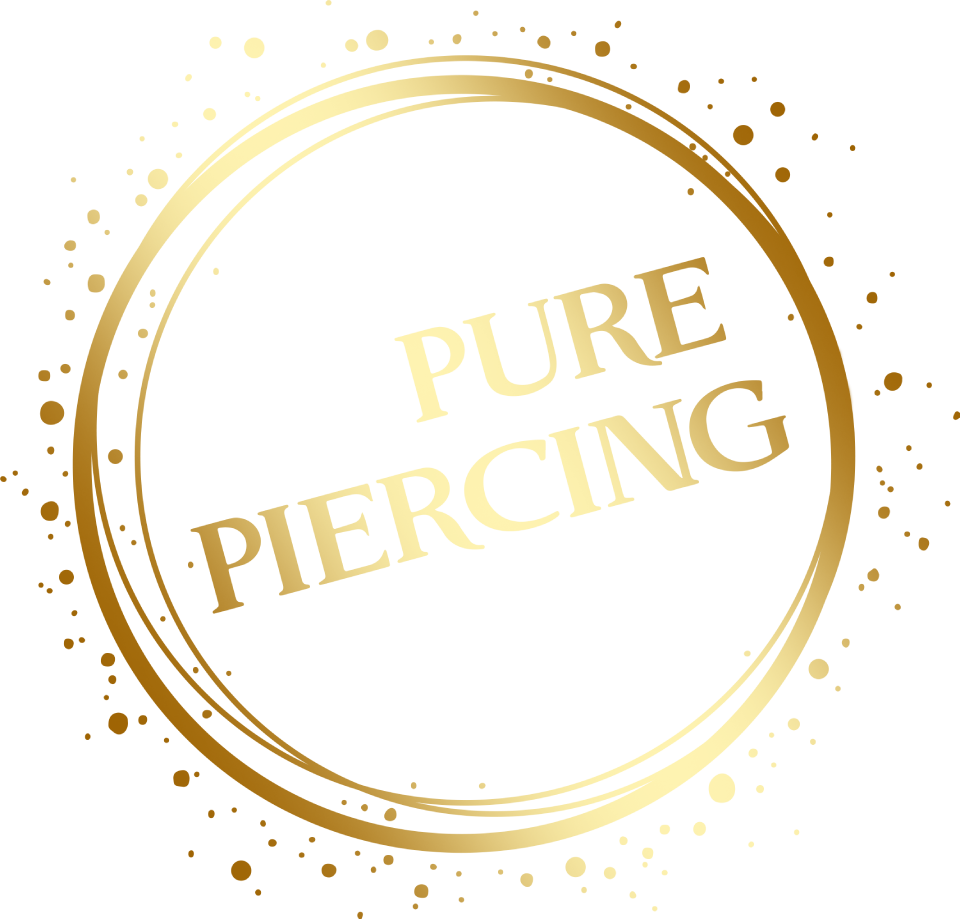
Welcome to Pure Piercing ! We are a professional piercing service based in Manchester and we have been providing piercings for over 15 years. On this page you will find our frequently asked questions which cover everything from what to expect and how to prepare to our age policies and suitable jewellery. We have competitive prices and offer discounts to students and NHS/Blue Light Card holders. If you have any other questions, please don’t hesitate to contact us.
Questions & Answers About Pure Piercing
At Pure Piercing we offer both paid bookings online aswell as walk in appointments where possible, but we always recommend booking through our website to avoid disappointment on the day.
When getting a piercing its best to eat beforehand and bring a snack or sugary drink with you particularly if you are prone to fainting. We allow others in the room with you, so you can choose whether you would like to be pierced by yourself or if you would like a friend there to be your support. When you arrive for your piercing, you will need to fill out a consent form with your details and some health questions, then you will go into the studio. Once there we will clean and mark you so you can check the placement of your piercing before going through with it. After the piercing we will talk you through how to care for your piercing, don’t worry if you have forgotten, we also email this to you.
There are a few potential reasons why we would not be able to pierce you. We cannot pierce anyone who is noticeably intoxicated as we require informed consent to pierce, we also recommend avoiding alcohol the day before your piercing, as this can make you more likely to bleed.
On our consent forms we have some medical questions and you may need to consult with your doctor if you have answered yes to any of the questions. We cannot pierce you if you are currently pregnant.
Be aware that piercings are anatomy dependent and you may not be suited to the piercing you choose, so you may want to choose a backup piercing that you also like.
At Pure Piercing we try to be flexible where possible, but believe that piercings should only be done with informed consent, because of this we do not pierce babies or children too young to understand the process.
For lobes our recommended minimum age is 8 years old, but we understand that children mature at different speeds and that some children are ready a few years before or after this. If you book in for a child’s ear piercing please note that we will not pierce unless they understand and consent to the process and if they say no, we will stop.
Most of our other piercings have a recommended minimum age of 14 with a few exceptions, but all minors will need parental or legal guardian consent. You need to be at least 16 years old for nipple, tongue, surface or dermal piercings. For those piercings you will need to bring photo ID with you, ideally a driving licence or passport, but if this is not an option a college or bus pass in combination with your birth certificate may be accepted.
You will need to be at least 16 years old for a nipple, tongue, surface or dermal piercings.
Sticking to proper cleaning and aftercare is important to avoid issues with your piercings.
Do not touch or twist your piercing and make sure to wash your hands before cleaning.
Make sure to only clean your piercings with the proper products.
For most piercings this would be either sterile saline solution or salt water.
If you are using a saline solution make sure you buy suitable products such as Neilmed or Stericlens. Some saline solutions such as contact Lense solution are not suited as they have additives that can irritate and are not sterile.
If you are making your own solution, boil the kettle to sterilise the water, wait for it to cool to avoid burning yourself and then add ¼ teaspoon of sea salt to a cup full of the cooled boiled water. Make sure to use sea or rock salt and never use table salt as it has preservatives added that could irritate your piercing.
For oral piercings rinse regularly (after eating, smoking ect) with cooled boiled water and sea salt. You may find it useful to fill an empty bottle with cooled boiled water and a few pinches of salt to take out and about with you. When you brush your teeth, rinse with alcohol free mouthwash. Avoid eating too much dairy, spicy foods or hot drinks, avoid playing with or biting your long bar.
For dermal piercings keep dermal covered with a plaster (small circular ones are best) for 10-14 days, removing it to give it air when you aren’t doing anything active and sure it won’t be knocked, use individually wrapped antiseptic wipes during the time you are still covering it, use the edge of the wipe to gently clean under the dermal top. Replace the plaster at least once a day. Once the dermal has settled and is uncovered clean as a normal piercing.
Piercings should be cleaned once a day during the healing period. Over cleaning your piercing is bad for it.
Alcohol wipes, antiseptic creams and other substances should never be used.
A new piercing may be red and tender for a few weeks. The healing time for piercings can vary depending on where it is and how well you look after it. As people heal at different speeds you may have to wait a little longer until changing but the minimum healing times are:-
- Lobes and cartlilage 8 – 12 weeks
- Scaffold/Industrial 6 – 12 months
- Nose 12 – 16 weeks
- Septum 8 weeks
- Tongue 8-12 weeks
- Eyebrow 8 – 12 weeks
- Lip 8 – 12 weeks
- Navel/Belly 6 months
- Nipple 9 months
- Surface 6 months
- Dermal 6 months
If you wish to downsize your piercing then this is possible but must be done with titanium jewellery as the piercing may be still healing and changing the jewellery with other materials may affect the healing process.
Downsizing times are approx. and may depend on how well the piercing is healing
Downsizing times:
- Lobes and cartlilage 6 – 8 weeks
- Scaffold/Industrial 10 – 12 weeks
- Tongue 2 – 3 weeks
- Eyebrow 2 – 4 weeks
- Lip 2 – 3 weeks
- Navel/Belly varies
- Nipple varies
- Surface 6 months
- Dermal 6 months
As piercings heal from the outside in, they will often feel healed before they are ready to but if your piercing is at least the minimum age old and is no longer red, sore or producing any visible discharge you will be able to change it, if you are intending on wearing a ring it is best to leave it a bit longer to avoid irritation caused by the change of shape.
Chemicals used to treat swimming pools and hot tubs can be very aggressive and will irritate a fresh piercing. It must be avoided completely during the initial healing and ideally for the full healing period, but if you do swim make sure to clean the piercing afterwards and gently dry it.
A non-bubble bath or shower will not damage your piercing, but make sure to rinse off soap or product off at the end and then with a cotton bud gently dry your piercing rather than letting it air dry
Piercing bumps are relatively common and most will disappear with time. Most of the time irritation bumps can be avoided with good after care and avoiding irritants (listed in the next section) and drying well.
If you have a piercing bump, make sure you are avoiding irritants, keeping it clean, avoid touching it and do not attempt to pop it.
One method to help speed the healing is chamomile tea bags- put the tea bag in a mug, add hot water and then once the tea bag is at an appropriate temperature gently hold it on the piercing for a few mins while it soaks and then dry it off after, aim to do this around twice a week until the bump has settled.
There is plenty of misinformation and misleading advice online so feel free to visit us for an in-person assessment
During the initial healing there are a lot of everyday things which could cause irritation to a fresh piercing. It is best to not have anything you wear pressing on to your piercing, if you wear glasses, hearing aids or a facemask make sure to consider this when choosing a piercing.
For body piercings you don’t want clothing to be rubbing against the piercing, for a navel this would mean avoiding high waisted clothing. For nipples make sure you wear an appropriate bra/top that doesn’t pull on the bars
Personal care products should not be put on a fresh piercing, this includes: fake tan, make up, hair or body products and heavily perfumed soaps or shampoos.
As tempting as it can be with a new piercing it is important not to touch your piercing other than with clean hands. When you are cleaning your piercing., don’t twist your piercing as this will slow the healing and introduce bacteria into the open wound.
Try your best not to sleep on your piercing, for ear piercings if you struggle to do this you can try sleeping on a neck travel pillow so that your head is supported while keeping pressure off your ear
With tragus, daith and some conch piercing it’s best not to wear earphones until after you downsize, and piercings on the outer side of your ear shouldn’t have headphones pressing on them until after you downsize.
Once the swelling has gone down, downsize to a smaller titanium bar whilst your piercing continues to heal will make it less likely that the piercing is caught or pulled and avoids other complications. This is also a great time for Pure Piercing to check on your piercings and answer any questions you have.
We charge £8 for downsizing your bar.
If you suspect an infected piercing you may need to seek medical attention.
A normal healing piercing may be tender, itch and produce a pale fluid that forms a crust or even bleed. The surrounding area may look slightly red on pale skin and a little darker than usual on dark skin. You may also have a small bump.
An infected piercing will be swollen, painful, hot and very red or dark. There could be blood or pus coming from it. Eventually you may feel hot, shivery or generally unwell. If you have those symptoms, please seek medical attention as you may need antibiotics.
Most piercings can be done through scar tissue, but it depends on the person and the placement, we can check this in person for you. We would probably not advise a repierce for dermal or surface piercings as scar tissue doesn’t hold the piercing as well as normal skin would.
You can still have piercings after cosmetic procedures but you will want to make sure your body has healed. For lip fillers we recommend waiting 3 months before getting a lip piercing. After surgery you will need to wait 6 months to a year depending on the intensity of the surgery, if your navel has been re-shaped or your nipple were moved during breast surgery you will have to wait at least a year before piercings in that area.
Retainers are plastic jewellery designed to make the piercing harder to notice whilst keeping the hole open, or for when medical scans require metal jewellery to be removed. As they are plastic they cannot be sterilised and are not suitable for fresh piercings and are only intended for short term use.
Lobe studs, simply hold the front and pull the butterfly, sometimes they do need a bit of force to move past the safety groove
Screw jewellery clockwise tightens, anti-clockwise loosens, can be fiddly but if you are able to use latex gloves it gives you a much better grip
As there are different types of rings there are different ways of removing them. Captive bead rings and segments are best to have fitted and removed by a piercing studio as we have special tools for doing this. Seamless style rings need to find the crack, open it with a twist motion (a pull motion makes it lose its shape) and then twist back. Hinge style rings you need to find the moving section and pull it away, when fitting make sure you hear a click to know it is closed correctly.
You may have heard that some piercings help with specific problems when they are done through acupuncture therapy points. Unfortunately, as of yet, there haven’t been any formal studies looking into this and there is no guarantee that those will work. However, we have had a number of customers tell us that their daith piercings have had a positive effect on the number or intensity of migraines they suffer, some have even said that their migraines have gone completely.
For more information about our services and piercings, contact us today via email at fi@purepiercing.com or call us on 07495 640712. Our qualified and experienced team are here to help.

Address
Pure Piercing
9 Royal Exchange Arcade, Manchester, M2 7EA
Contact
Phone: 07495 640712
Email: fi@purepiercing.com
Opening Hours
Mon – Sat: 11:00 – 18:30
Sunday: 12:00 – 17:30
More links
Legal notice
Privacy policy
instagram
© 2023 Pure Piercing Ltd
